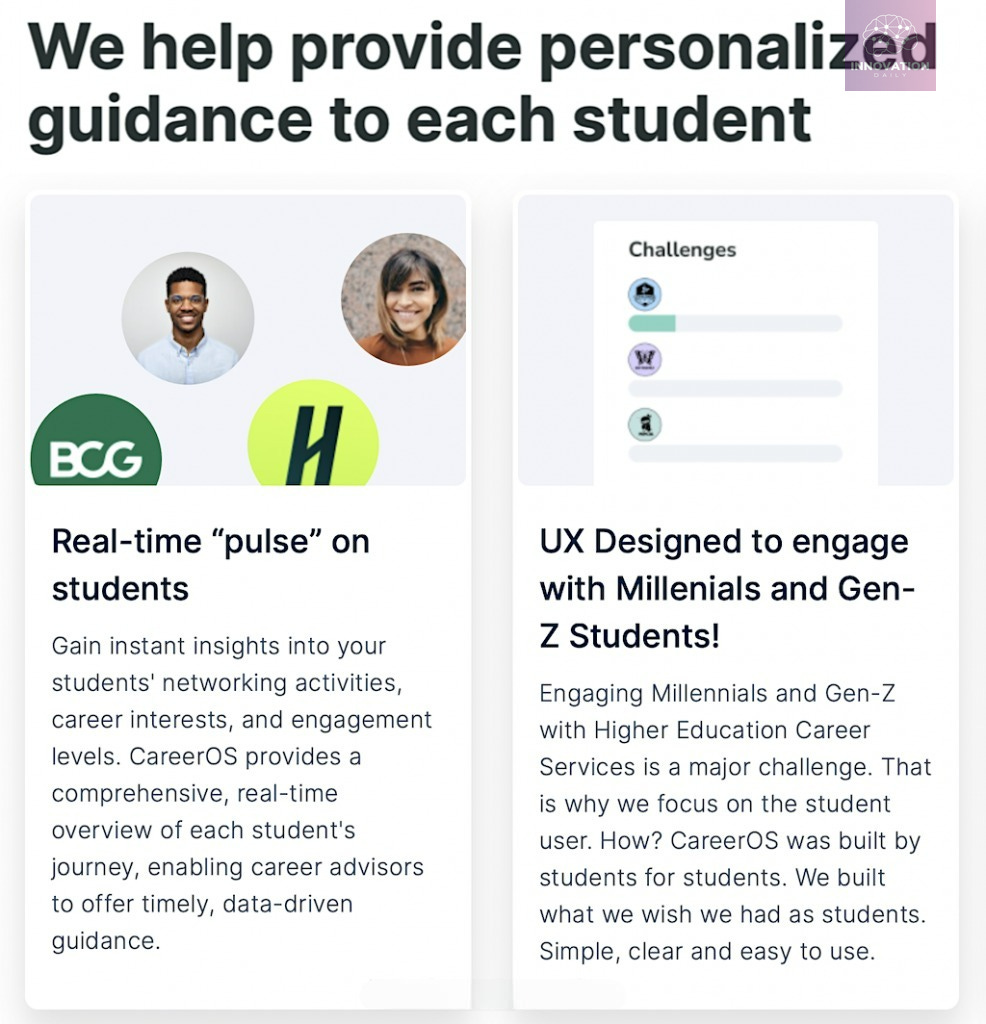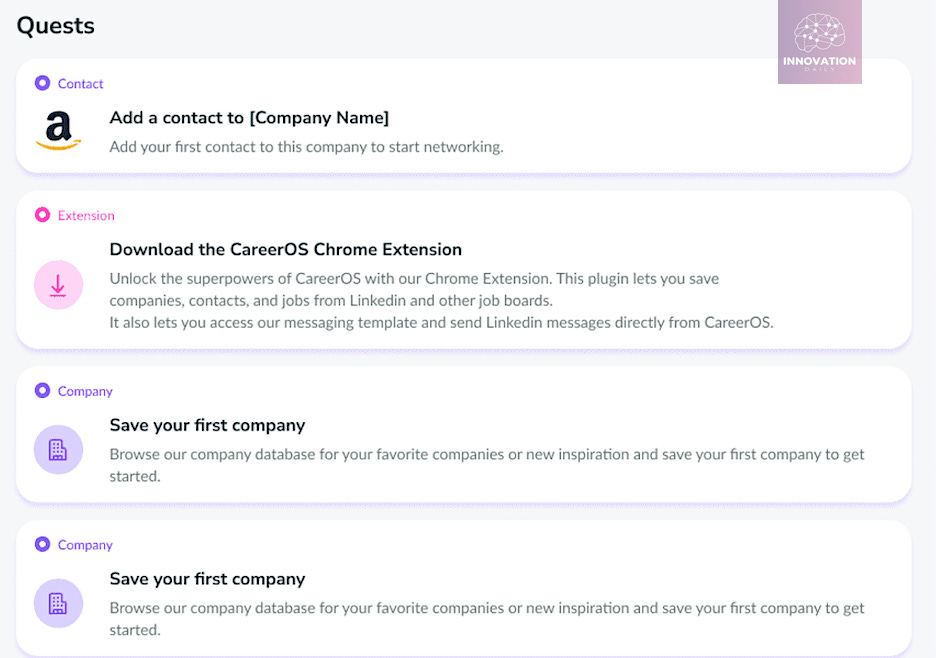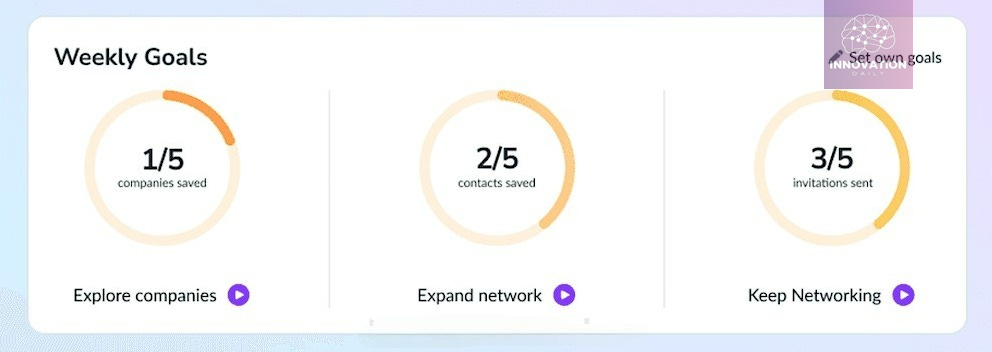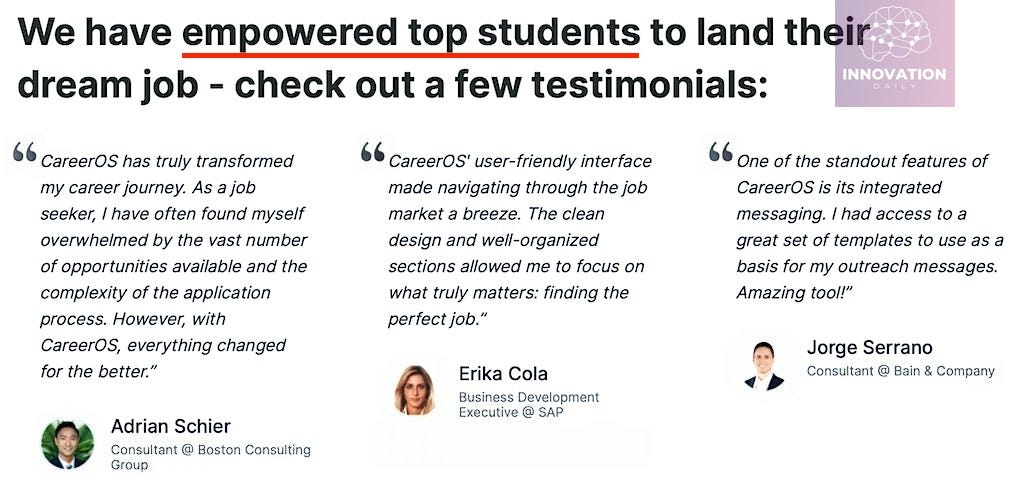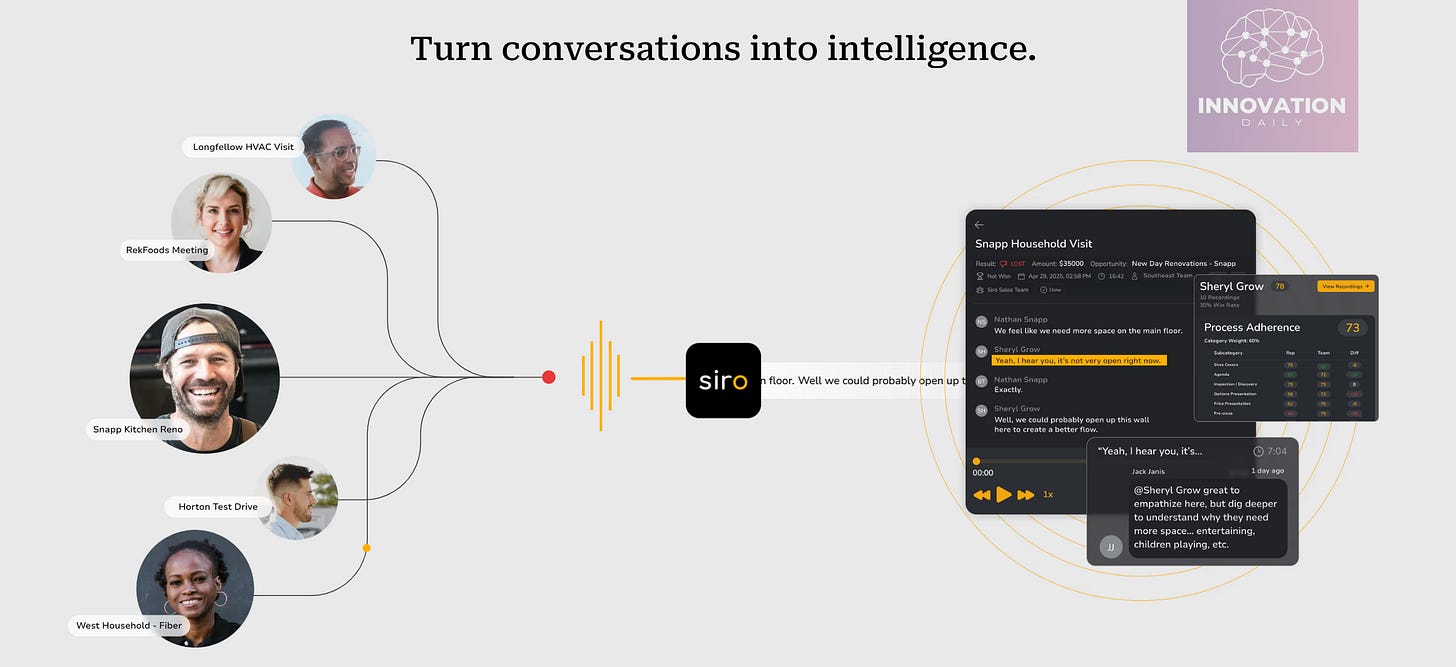Questify Job Search
Today’s featured startup is helping universities turn job hunting into a gamified journey powered by AI
Project Overview
CareerOS is a platform that helps university students find jobs more effectively after graduation.
Its efficiency comes down to three things:
Each student gets personalized job search recommendations based on their major, academic performance, and interests.
University administrators can see how actively students are taking steps that increase their chances of employment — and can nudge those who aren’t doing enough.
The platform’s interface is designed with Millennials and Gen Z in mind, making the process intuitive and engaging for digital-native students.
CareerOS turns the job hunt into a game. Students complete weekly “quests” — saving potential employers, connecting with HRs and industry experts, and maintaining contact networks — to earn points. The system tracks scores in real time and ranks participants, adding a healthy sense of competition to what’s usually a dull process.
Underneath the gamification lies a serious AI engine. It builds an individual job search plan for each student, recommends relevant vacancies, and even helps draft messages to potential employers.
Founded in 2023, CareerOS already works with universities in Spain, the US, France, and Germany — and recently raised $1.2 million in funding.
What’s the Gist?
The most successful startups help users reach real outcomes, not just make processes more convenient.
In education, that outcome is simple: students want jobs, and universities want high employment rates among graduates. CareerOS delivers both — giving universities a measurable edge when recruiting new students.
While the company claims to “help the best students find their dream jobs,” that’s not where the real value lies. Top students usually land jobs on their own. The real problem lies with the average and underperforming students — the ones who don’t actively look for jobs unless someone keeps them accountable.
For universities, tracking and motivating these students is time-consuming and expensive. CareerOS automates that process, saving resources while boosting employment outcomes across the board.
This mirrors a broader pattern seen in other AI-driven productivity tools — like Siro, a startup that created an AI sales coach. Its real innovation wasn’t helping top performers sell even more; it was helping mediocre sales reps reach a decent level of performance. When that happens, the entire team’s results improve dramatically.
AI’s real power isn’t in enhancing excellence — it’s in raising the baseline. Recent studies show that high-performing employees improve their output by 17% when using AI, while everyone else improves by 43%. As a result, the gap between “good” and “bad” performers almost disappears.
So if you’re investing in AI training, the real ROI comes from teaching your worst employees — not your best.
Key Takeaways
AI products should be built for the “average” user, not the top performer.
AI can spend endless time guiding, explaining, or even doing the task for them — turning mediocre results into acceptable ones. That’s where the biggest productivity gains (and business value) lie.Ask the right questions when building AI tools:
– What are people consistently doing poorly today?
– Could they improve if we helped them ten times more?
– What should AI know and do to make that happen?CareerOS’s model can extend beyond universities.
The same approach could transform online vocational courses — where job placement rates often lag not because of teaching quality, but because students don’t actively pursue jobs during training.Such a platform could:
Include job-search learning modules (networking, resumes, interviews).
Partner with employers to provide a shared pool of qualified candidates.
Most edtech startups focus on improving learning itself. CareerOS focuses on improving results — employment. And that’s where the real opportunity lies.
Company Info
CareerOS
Website: thecareeros.com
Latest Round: $1.2M, 16.02.2023
Total Funding: $1.2M




